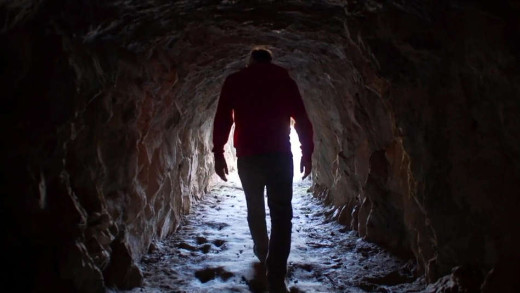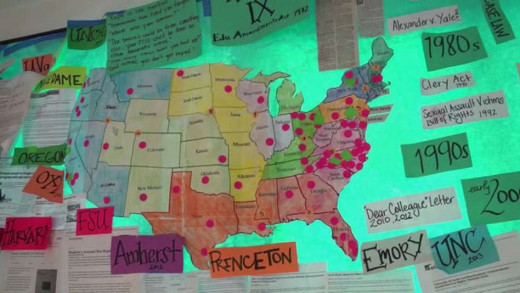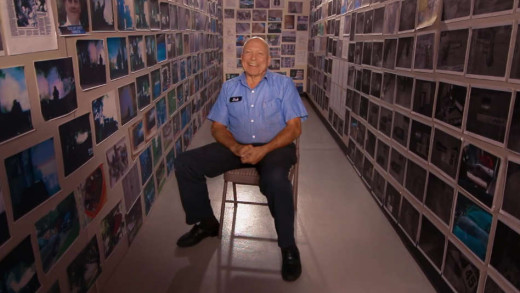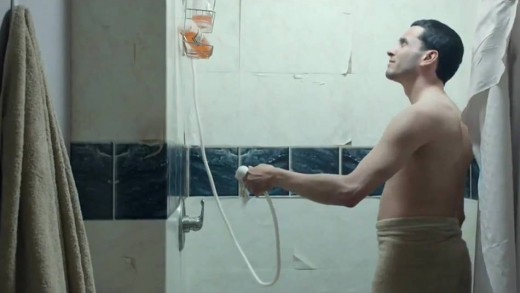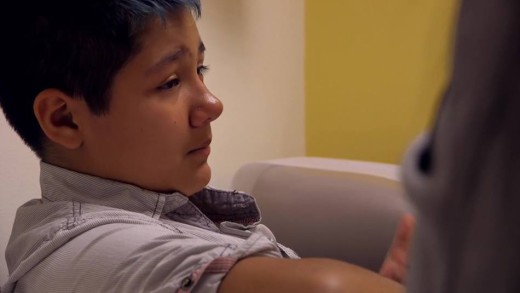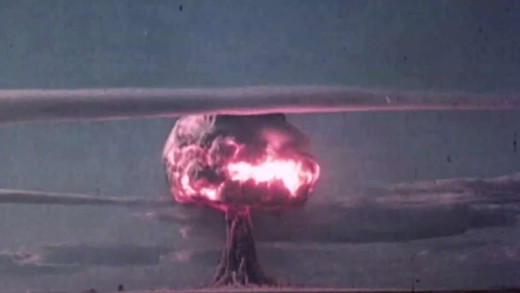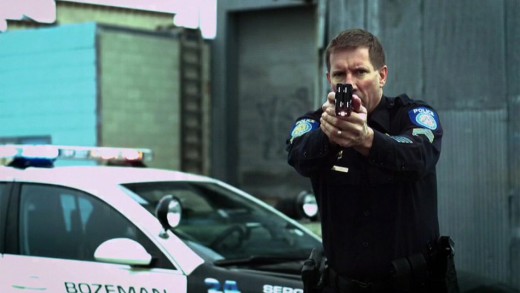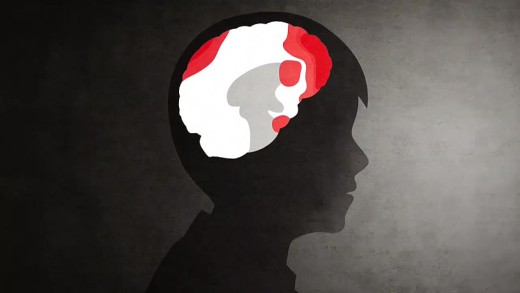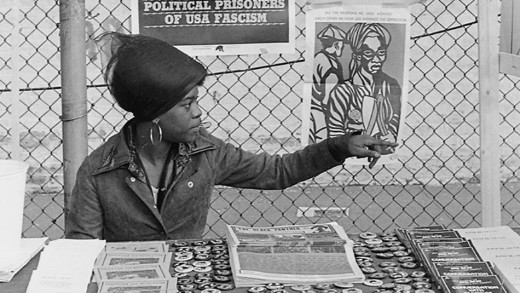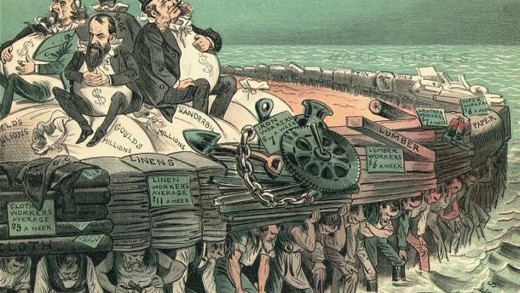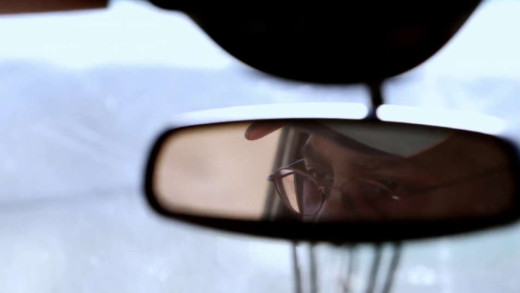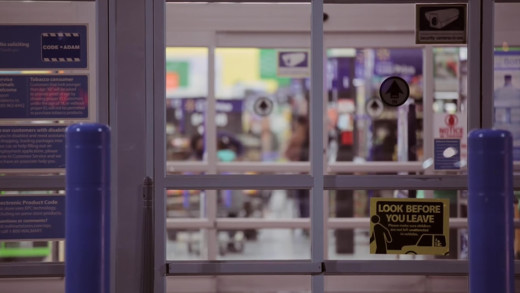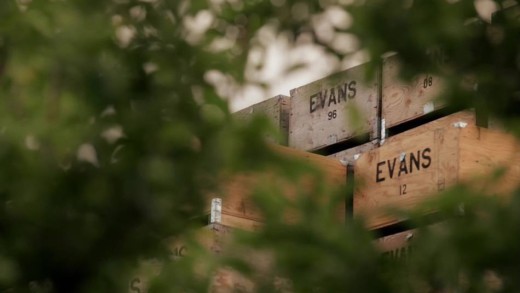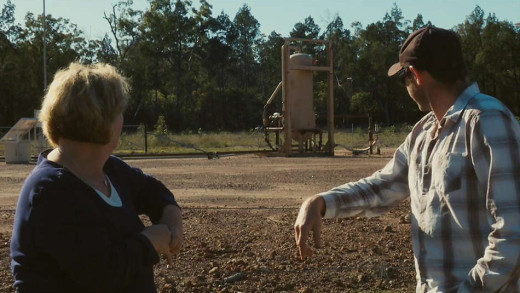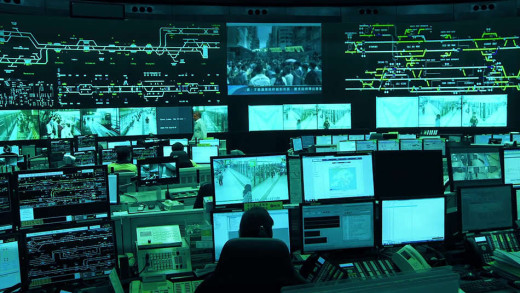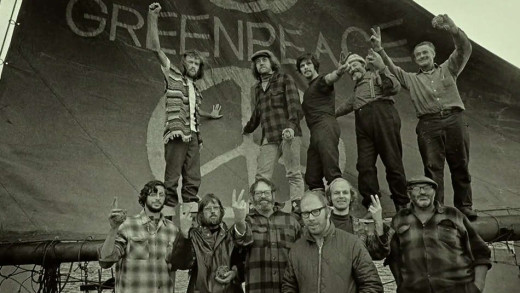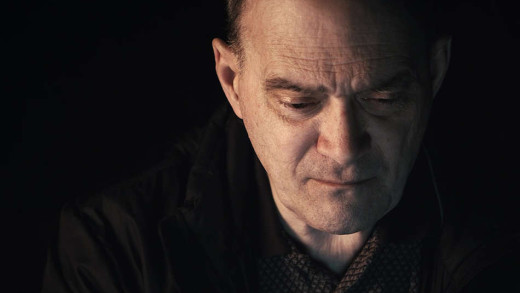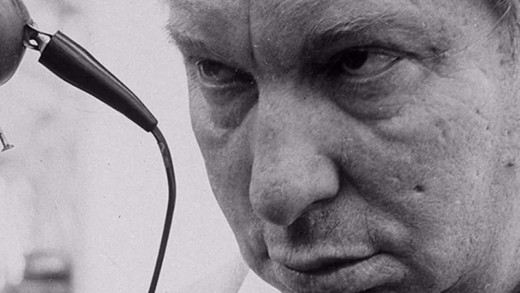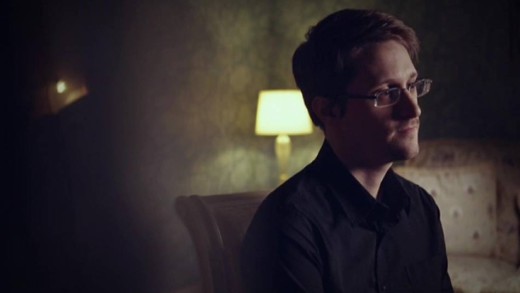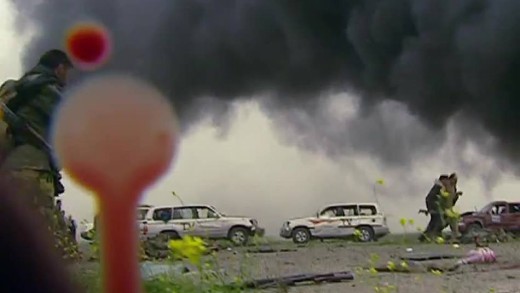In the race towards modernity, amongst the buzz and jitter of technological innovation and the rapid growth of cities, silence is now quickly passing into legend. Beginning with an ode to John Cage's seminal silent composition 4' 33", the sights and sounds of this film delicately interweave with silence to create a contemplative experience that works its way through frantic minds and into the quiet spaces of hearts. As much a work of devotion as it is documentary, In Pursuit of Silence is a meditative exploration of our relationship with silence, sound, and the impact of noise on our lives.
In 1960, NBC aired what is widely considered to be the first reality television show in American broadcast history. Billing itself as a new kind of visual reporting, the show was called Story of a Family, and it purported to document the day-to-day lives of the 10-member Robertson family of Amarillo, Texas. While the show has long since faded from public memory, media scholars and television historians have long recognised its significance as a precursor to the "unscripted programming" that dominates television today. TV Family draws on this history by interviewing several of the children featured in Story of a Family, to offer a fascinating behind-the-scenes account of how the show was made, and what it means to shape culture. Weaving personal anecdotes with commentary from historians and scholars, TV Family reveals the story of how the show's producers carefully choreographed the way they wanted the family to appear to the American public—all in the name of "authenticity." The result is an eye-opening look at one of television's earliest successes in shaping the reality of family life in commercially viable ways.
The Hunting Ground presents the story of multiple students who were sexually assaulted at their college campuses, and say that college administrators either ignored them or required that they navigate a complex academic bureaucracy to deal with their claims, and then often did nothing. The film shows that many college officials were more concerned by minimising rape statistics for their universities than by the welfare of the students, and contains interviews with college administrators who state that they were pressured into suppressing rape cases. The film documents the lack of action by law enforcement and university administrations, including Harvard, the University of North Carolina at Chapel Hill, Amherst College, and Notre Dame, but it also examines fraternities such as Sigma Alpha Epsilon, colloquially referred by some as "Sexual Assault Expected." The Hunting Ground also profiles a group of students that pushed back against this extreme injustice, by creating their own survivors network across the United States, supporting survivors and driving universities to finally take the issue of sexual assault seriously.
Peace Officer explores both the militarisation and increasingly violent culture of police forces, as told through the career of William Lawrence, a former sheriff of Davis County in Utah United States, who established and trained the state's first SWAT team. As a gifted investigator, Lawrence's savvy skills help break the Ted Bundy case. He also sees SWAT enter the public consciousness and transform the culture of policing throughout the 1970s, along with the convergence of the War on Drugs on policing attitudes and police violence. He eventually leaves public office, concerned, when soon after, his son-in-law is killed in an emergency call gone awry by the very same SWAT unit he created 30 years ago. An internal investigation of course finds no police wrongdoing, so Lawrence turns to his own renowned investigative skills. He sets out to not only uncover the truth of his son-in-law's homicide, but to tackle the culture and attitudes of modern-day policing on a national level.
Would any sane person think dumpster diving would have stopped Hitler, or that composting would have ended slavery or brought about the eight-hour workday; or that chopping wood and carrying water would have gotten people out of Tsarist prisons; or that dancing around a fire would have helped put in place the Voting Rights Act of 1957 or the Civil Rights Act of 1964? Then why now, with all the world at stake, do so many people retreat into these entirely personal "solutions"? Why are these "solutions" not sufficient? But most importantly, what can be done instead to actually stop the murder of the planet?
What do you get when you combine the culture of screens with the society of the spectacle, pervasive individualism with its rampant loneliness, in a media environment awash in a culture of pornography, instant gratification and self-interested sexual impetuousness? An insight into the question could be perhaps explained through The Secret World of Tinder. Tinder is an 'app' for 'smartphones' that displays profile pictures of people that are near the phone. When couples are matched, they can text each other. Many call it "the sex button" and the app indeed has a reputation in the world of online dating. This short TV documentary attempts to explore what it means in today's culture mediated by technology, as seen through the Tinder app, providing insights into the way some people think and feel about sex and relationships in the age of the technocracy.
Growing Up Trans explores how queer theory, now in the mainstream, has come to children—some younger than six years old. For just a generation ago, it was considered only adults who wished to perform opposite gender stereotypes, physically changing their bodies or appearance with drugs, hormones and invasive surgery; but today, many young children are seeking serious and new medical or chemical interventions, at younger and younger ages, in a culture of rampant individualism and post-modernism. Told from the perspective of parents, doctors, but perhaps most revealing of all, the kids themselves, Growing Up Trans reveals a sharp narrative that speaks to the choices and struggles of a new generation of young people, while also illustrating the dynamics of the larger post-modern culture and how its profoundly influenced their lives, bodies, and indeed the existential self.
As the United States developed the world's first nuclear weapons in secret, it was surprised at the speed in which the USSR was able to also develop such weapons, and that such developments would lead to an unprecedented arms race. The USSR was able to obtain all the nuclear discoveries made by scientists who worked on the top-secret Manhattan Project through a very unusual spy, Elizabeth Zaroubin. She managed to gain the trust of great researchers, such as Einstein, in a story comparable to some of the best spy novels ever written.
Hot Girls Wanted is an up-close and personal view into the lives of several 18 to 25 year-old girls who are lured into the world of amateur pornography on the Internet. The film sets out to illustrate just some of the many ways the industry really works as opposed to how it appears, as well as providing an insight into the modern recruitment process—the pundits on the inside call it 'The Game.' And there are many tricks. According to the teens themselves, many come to porn by the promise of rich extravagant lifestyles, as well as fame and visibility. And while the money can be good for some, at least for a little while, that's only a small part of the picture. The myths are many and there is a brutal reality of life in the industry, causing high turnovers of girls—once they cotton-on to The Game...
Sugar Coated investigates a once secret public relations campaign, dating back to the 1970s, where the sugar industry deflected threats to its multi-billion dollar empire from scientific research emerging implicating processed sugar with adverse health effects. In order to continue sweetening the world's food supply, thus securing continued profits, the sugar industry turned to the very same deceptions and tactics lifted from the tobacco industry. Using big sugar's own internal documents on this strategy, Sugar Coated reveals the well-oiled tricks of the trade to confuse the public about what is really driving the global pandemic of obesity, diabetes, and heart disease. Will we be fooled again?
In the early 2000s, two brothers garnered tremendous wealth when they started a company selling so-called "non-lethal" taser weapons, which quickly saturated police agencies and reinforced a culture of trigger-happy police officers. But instead of "saving lives" as was the catch-cry of the taser, and the company, the weapons were instead commonly used for pain compliance, and lead to a spurious string of deaths. The company didn't back down. They insisted, despite mounting evidence to the contrary, that their weapon was safe and not at fault—not even a contributing factor—in the killings. Killing Them Safely delves into this troublesome mindset and that of the company, as well as the social implications of such weapons in a problematic police culture.
The Mask You Live In unpacks how this culture's narrow and harmful definition of masculinity effects boys, young men; girls and women; and society in general in myriad ways, as our children struggle to stay true to themselves when confronted by this culture. Pressured by their peer group, heavily influenced by a barrage of media messages, and even their very own parents and other adults in their lives, our protagonists confront messages encouraging them to disconnect from and suppress their emotions, devalue authentic friendships, objectify and degrade women, and resolve conflicts through violence, control and manipulation. These traits and stereotypes closely interconnect with problems of race, class, and circumstance, creating a maze of identity issues boys and young men must navigate to become "real" men as the culture expects and perpetuates. Experts in neuroscience, psychology, sociology, sports, education, and media also weigh in, offering empirical evidence of how these issues intersect, and what we can do about it.
In Requiem for the American Dream, renowned intellectual figure Noam Chomsky deliberates on the defining characteristics of our time—the colossal concentration of wealth and power in the hands of the few and fewer, with the rise of a rapacious individualism and complete collapse of class consciousness. Chomsky does this by discussing some of the key principles that have brought this culture to the pinnacle of historically unprecedented inequality by tracing a half century of policies designed to favour the most wealthy at the expense of the majority, while also looking back on his own life of activism and political participation. The film serves to provide insights into how we got here, and culminates as a reminder that these problems are not inevitable. Once we remember those who came before and those who will come after, we see that we can, and should, fight back.
1966, United States. A new revolutionary culture was emerging and it sought to overthrow the corrupt systems of power waging the invasion of Vietnam, amongst the struggle for equality and civil rights at home. Beginning with armed citizens' patrols to keep police accountable and challenge police brutality in Oakland California, The Black Panther Party put itself at the vanguard for social change, expanding in 1969 to community social programs, including free breakfast for school kids and community health clinics. This lead the FBI to call the movement "the greatest threat to the internal security of the country," and start an extensive government program called COINTELPRO to surveil, infiltrate, perjure, harass, discredit, destabilise and disintegrate the movement. This film chronicles the story arc of the Black Panthers successes and failures, through the voices of the people who were actually there: police, FBI informants, journalists, white supporters and detractors, and the Black Panthers themselves.
Plutocracy: Political Repression in the United States is a series of films that comprehensively examine early North American history through the lens of class, to enable a wider critique of the social order in contemporary United States. The series not only documents and exemplifies individual strikes and labour movements throughout the centuries, but also serves to connect the narratives and political lessons of an entire era from a working-class viewpoint, forming a solid base of analysis for class struggle.
Traversing the judgement placed on women who bottle-feed their babies, to the stigma surrounding mothers who breast-feed their toddlers, and the stigma of breast-feeding in public, the polarised topic surrounding breast-feeding sets off an emotional and personal debate in a highly eroticised culture, where it is hard for some to remember that breasts have a purpose that is not selling cars, beer, and sex. Milk investigates the overarching themes surrounding the commercialisation of infant feeding and its effects on child mortality, as well as the challenges it presents to adequate health worker training and the judgement placed on women regardless of how they choose to feed their babies. Milk also shows the natural world juxtaposed to the industrialised way in which we receive a new life into this world. Milk follows stories of mothers from different cultures spanning 11 countries, as it reveals the universal issues and challenges facing motherhood and birth today.
(T)error is the story of a 62-year-old Theodore Shelby, a former Black Panther now turned informant for the FBI going under the name Saeed “Shariff” Torres. The film documents his work on an undercover sting operation that targets a Muslim American Khalifah Ali Al-Akili on weapons charges, as well as Tarik Shah, a professional jazz musician, accused of providing support to al-Qaeda, even though no actual terrorist contact ever took place. The cases are used as examples of preemptive prosecutions, and illuminate aspects of the surveillance state in the post-9/11 world of the United States.
Rape on the Night Shift is a harrowing investigation into the rampant sexual abuse of the many thousands of unseen women who clean the shopping centres, banks and offices of some of the largest companies throughout the United States. The cleaning companies and contractors themselves are some of the largest companies throughout the country and the world. This report follows a prior investigation about systemic abuse of migrant women working in America's fruit and vegetable fields, as well as packing plants and industry. Both set out to document the many aspects of a booming rape culture, driven in part by the synergy of a failure of criminal prosecutions, the legal system, a culture of pornography, the realities for migrant workers, and a perfect storm for human trafficking.
Rape in The Fields is the first part of a year-long reporting effort into the systemic abuse of migrant women working in the fruit and vegetable fields, packing plants and industry of the United States. The film travels from the almond groves of California's Central Valley to the packing plants of Iowa, from the apple orchards of Washington's Yakima Valley to the tomato fields of Florida, speaking with dozens of women who have been sexually assaulted and abused on the job. What is shown is that in the vast fields and orchards of today's vast agribusiness, it's easy for a rapist to stalk his victims, and the systems function in such a way to protect the rapist, rather than the workers. Many workers are also immigrants who dare not even denounce their attackers for fear they'll be deported. The situation on the whole is rife for ensuring abuses. A Human Rights Watch report published in May of 2014 found that rape and other forms of sexual abuse and harassment of female workers was a common problem. This report sets out to shed a light on that problem and expose the new-style slavery and abuse of workers that still continues to this day.
Frackman introduces us to Dayne Pratzky, who is looking to build a simple home on his block of land in central Queensland, Australia. But one day the gas company comes and demands access to his land for gas mining. Dayne doesn't want that, but is told he has no right to refuse access to his land, and so begins his transformation into a reluctant activist on a journey that takes him around the world. Through his efforts, we see other people drawn into the battle of fending off rapacious coal-seam gas miners. Frackman presents this story, crossing ideological divides, bringing together an alliance of farmers, conservationists, political conservatives, and a cast of colourful Aussie bush characters, determined in different ways to stop fracking from destroying the land.
Filmmaker Werner Boote travels across the globe to investigate the era of so-called Big Data, where huge amounts of detail about our lives are gleaned for use in decision making, automation, and consumerism, but ultimately, to generate huge profits for corporations that harvest and control our data. Everything's Under Control investigates these modern times through many lenses: People who have studied surveillance culture, to democracy activists in Hong Kong; from educators, advertisers, and traders, to privacy advocates, and security experts; from digital IDs, fingerprinting, iris scans and online profiling, to hacking, data leaks, and invigorating recent historical memory of atrocities based on data and personal information. We hear distorted perspectives on privacy from many voices, challenging the viewer to reflect on what it means to live through the largest social experiment with data ever before conducted on a global scale.
In the early 1970s, in response to the United States testing nuclear weapons on the island of Amchitka, a group of environmental activists got together with the aim of sailing a ship out to Amchitka to disrupt the weapons tests and stop them. But fuelled by bad weather, delays, infighting and clashes of ego, the group never reached the island and the weapons tests went ahead. Yet the symbolism of their attempt flourished in the media, entering the public consciousness. This is where the "Greenpeace movement" was born, emerging from the era of a philosophy of passive resistance, where bearing witness to objectionable activity is supposedly protested simply by a mere presence. But just how far can this philosophy go to actually stop atrocities? This film reveals the answer to that question, where Greenpeace eventually morphs into a large global organisation, far from its environmental ideals. Internal fallout leads to the founders each drifting their own separate ways, with some even coming to criticise Greenpeace and others even actively working against their own creation.
A Good American chronicles the work of whistleblower William Binney, a former official of the National Security Agency who specialised in cryptography and signals intelligence analysis for over three decades. The film focuses on the lead up to the events of the 1990s where Binney was instrumental in the creation of a secret intelligence program called ThinThread, in which mass surveillance of global communications data was carried out and had sophisticated analysis applied to it in search for threats in real time. However, three weeks prior to the September 11th 2001 attacks, Michael Hayden, director of the NSA, ends the ThinThread program to instead run with another called Trailblazer which lacks privacy protections. Not long after this, Binney resigns. What the NSA does to Binney after this turn of events is the story of the transformation where Binney and his colleagues Kirk Wiebe, Ed Loomis, Thomas Drake, and Diane Roark blow the whistle on a corrupt and brutal agency.
Steve Jobs: The Man in the Machine is not just another celebratory biographical film about the life of a business man that many around the world grieved in 2011. It's a full rounded critical examination into the fundamentals of a person revered as an iconoclast, a barbed-tongued tyrant, a business sociopath. The real Steve Jobs is revealed like this through candid interviews from those who had close relationships with him at different stages of his life, including the mother of his child, Lisa, that Jobs refused he had, but named a computer after instead. The film also takes us through the evocative essence of the brand of Apple Computers which has captured the population like zombies, and asks the question: What is the legacy of this industry, and the truth of this kind of person that the culture celebrates so much, completely ignoring the darkness?
Going Clear: Scientology and the Prison of Belief profiles eight former-members of the cult of Scientology, leading to a series of revelations of the history of systematic abuse, manipulation, and betrayal in the organisation by Scientology officials and celebrity figures. The film highlights the origins of Scientology, from its roots in the mind of founder L. Ron Hubbard and successor David Miscavige, to its rise in popularity in Hollywood and beyond. The result is a record of great harm, paranoia, abuse, the vast accumulation of wealth, and a lust for power and control.
Snowden's Great Escape documents the story of Edward Snowden in Hong Kong in the days after he gave journalists a trove of secret documents about the global mass-surveillance network. The journalists had returned home and the revelations were slowly being published, but Edward Snowden himself was alone, with minimal money, and the largest hunt in history to frantically drag him back to the United States was closing in. This film shows how Snowden, without contacts or money, was able to shake the United States government to its core, evade the hunt, and go on to expose and confirm the reality of ongoing global surveillance by the world's so-called democracies. The story serves as sobering inspiration for ordinary citizens to go against all odds and fight back against the pervasive dark world of surveillance and social manipulation, not only in the US or UK, but everywhere.
Bitter Lake explores how the realpolitik of the West has converged on a mirror image of itself throughout the Middle-East over the past decades, and how the story of this has become so obfuscating and simplified that we, the public, have been left in a bewildered and confused state. The narrative traverses the United States, Britain, Russia and Saudi Arabia—but the country at the centre of reflection is Afghanistan. Because Afghanistan is the place that has confronted political figureheads across the West with the truth of their delusions—that they cannot understand what is going on any longer inside the systems they have built which do not account for the real world. Bitter Lake sets out to reveal the forces that over the past thirty years, rose up and commandeered those political systems into subservience, to which, as we see now, the highly destructive stories told by those in power, are inexorably bound to. The stories are not only half-truths, but they have monumental consequences in the real world.
By examining the people and practices of the media and entertainment industries, The Fourth Estate illuminates not only specific incidences of corruption by press groups, but how the wider model of mainstream journalism itself as a for-profit entity has a huge amount to answer for in terms of democracy and the state of politics throughout the world. Filmed over two years throughout the UK on no budget, the filmmakers profile journalists, organisers and critics of industrial media practices, stemming from the Leveson Inquiry in 2011 which was set up to examine the culture, practices and ethics of the British press following the News International phone hacking scandals of the Murdoch media empire. While the phone hacking scandal illuminated the depth and breadth of the culture of British journalism, the media's focus at the time quickly diverted from a brief period of self-examination, back to business as usual. This film instead continues the analysis by looking at the larger implications of a for-profit media model and its connections to ideology, entertainment, and hence the resulting political framework that's in crisis.
